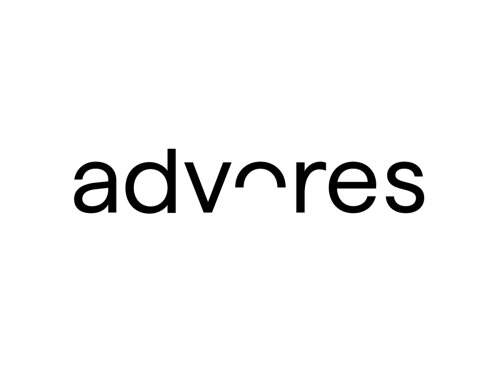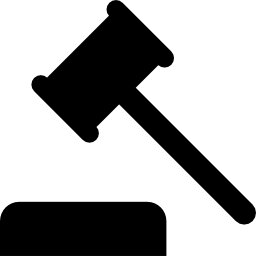Best Whistleblower & Qui Tam Lawyers in Denmark
Share your needs with us, get contacted by law firms.
Free. Takes 2 min.
Or refine your search by selecting a city:
List of the best lawyers in Denmark
About Whistleblower & Qui Tam Law in Denmark
Whistleblower and Qui Tam laws in Denmark are designed to protect individuals who report misconduct, fraud, or other illegal activities within organizations. These laws encourage transparency and integrity in both public and private sectors by safeguarding the rights of whistleblowers who expose unlawful activities in good faith. Unlike the concept of Qui Tam in the United States, which allows private individuals to sue on behalf of the government and receive a portion of the recovered penalties, Denmark's focus is primarily on protecting whistleblowers from retaliation and ensuring that allegations of misconduct are thoroughly investigated.
Why You May Need a Lawyer
There are several scenarios where individuals may seek legal assistance with whistleblower and Qui Tam issues in Denmark:
- If you have witnessed fraud or misconduct in a workplace and are considering making a report, a lawyer can help you understand your rights and protections under the law.
- If you face retaliation or adverse action from your employer after reporting misconduct, you may require legal representation to address these challenges and ensure your protection.
- Companies facing allegations of misconduct might need legal advice to handle investigations lawfully and to understand their obligations under the law.
- Legal practitioners can assist in navigating the complexities of filing formal complaints with appropriate authorities and ensuring compliance with legal procedures.
Local Laws Overview
In Denmark, whistleblower protection is primarily governed by national legislation aligning with the EU Whistleblower Directive, which requires public and private organizations to establish robust reporting mechanisms. Key aspects include:
- Protection against retaliation for whistleblowers who report information about breaches of Union law or other serious misconduct.
- Obligation for companies with 50 or more employees and public sector organizations to set up secure reporting channels.
- Provision for confidentiality regarding the identity of the whistleblower to minimize the risk of retaliation.
- The right of the whistleblower to disclose information to the public under specific circumstances, such as when internal or external reporting channels could not be effectively used.
Frequently Asked Questions
1. What constitutes a whistleblower report?
A whistleblower report typically involves the disclosure of information regarding illicit activities, fraud, or violation of laws occurring within an organization.
2. Who can be a whistleblower in Denmark?
Any individual affiliated with an organization, including employees, contractors, suppliers, and volunteers, can potentially become a whistleblower if they report misconduct in good faith.
3. What protection is available for whistleblowers?
Whistleblowers are protected from retaliation, meaning they cannot legally face adverse actions such as dismissal, demotion, or discrimination based on their reporting.
4. How should I report misconduct?
You can report misconduct through internal reporting channels within the organization or utilize external reporting mechanisms managed by authorities.
5. Is my identity protected after making a report?
Yes, whistleblower laws ensure the confidentiality of your identity to protect you from potential retaliation.
6. Can I report anonymous information?
While anonymous reporting is possible, providing contact information might be necessary for efficient investigation and follow-up on the reported issue.
7. What if I face retaliation?
In case of retaliation, it is advisable to seek legal counsel to understand your rights and explore remedies available under the law.
8. Are there any incentives for whistleblowers in Denmark?
Unlike in some other jurisdictions, there are no financial incentives for whistleblowers in Denmark. The focus is more on ensuring protection and proper investigation of the reported issues.
9. Can my report lead to an investigation?
Yes, credible and detailed reports can trigger investigations by the relevant authorities to address and mitigate the reported misconduct.
10. Can I withdraw my report after filing it?
While you can inform authorities about your decision, the investigation of the reported misconduct might proceed independently if it falls within the scope of serious legal infractions.
Additional Resources
For more information and assistance, you may consider consulting these resources:
- The Danish Data Protection Agency (Datatilsynet): Oversees compliance with data protection laws and handles complaints related to whistleblower data security.
- Local trade unions: They often provide support to employees who face challenges related to whistleblowing.
- Legal aid services: For those eligible, legal aid services in Denmark can provide necessary assistance and advice regarding whistleblowing issues.
Next Steps
If you are considering blowing the whistle or are dealing with related legal issues in Denmark, here are some steps you may consider:
- Seek legal advice from a lawyer specializing in employment law or whistleblower protection to understand the full extent of your rights and obligations.
- Use secure and authorized channels to file your whistleblower report, ensuring you provide detailed and substantiated information.
- If you encounter retaliation, document all incidents meticulously and consider reaching out to legal experts for potential action.
- Stay informed about any updates or legal changes regarding whistleblower protection laws in Denmark and the EU.
Lawzana helps you find the best lawyers and law firms in Denmark through a curated and pre-screened list of qualified legal professionals. Our platform offers rankings and detailed profiles of attorneys and law firms, allowing you to compare based on practice areas, including Whistleblower & Qui Tam, experience, and client feedback.
Each profile includes a description of the firm's areas of practice, client reviews, team members and partners, year of establishment, spoken languages, office locations, contact information, social media presence, and any published articles or resources. Most firms on our platform speak English and are experienced in both local and international legal matters.
Get a quote from top-rated law firms in Denmark — quickly, securely, and without unnecessary hassle.
Disclaimer:
The information provided on this page is for general informational purposes only and does not constitute legal advice. While we strive to ensure the accuracy and relevance of the content, legal information may change over time, and interpretations of the law can vary. You should always consult with a qualified legal professional for advice specific to your situation.
We disclaim all liability for actions taken or not taken based on the content of this page. If you believe any information is incorrect or outdated, please contact us, and we will review and update it where appropriate.
Browse whistleblower & qui tam law firms by city in Denmark
Refine your search by selecting a city.














